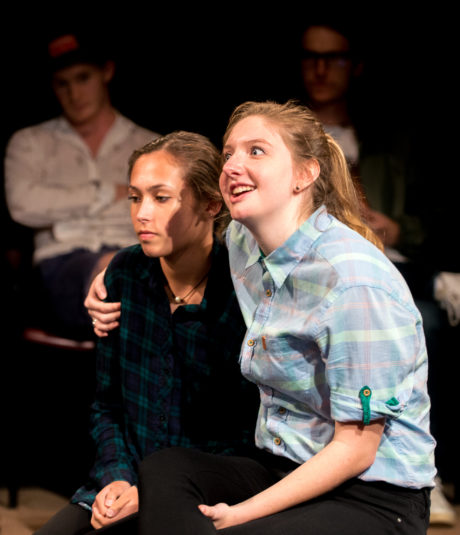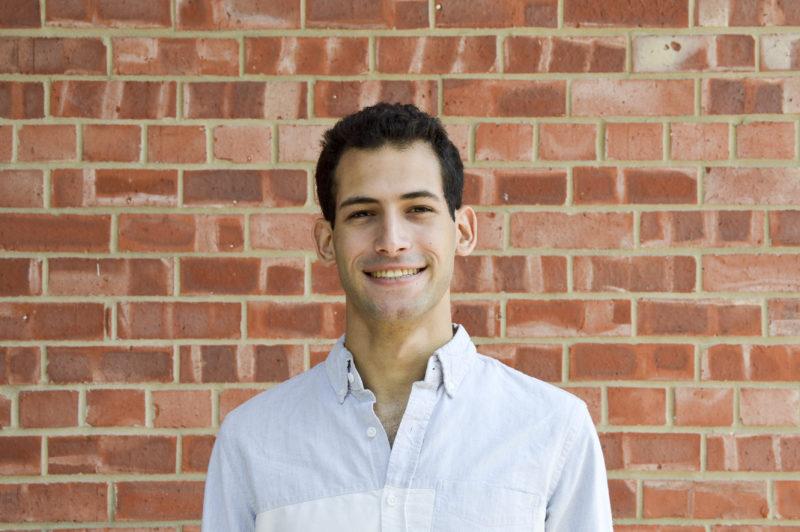In last week’s issue of the Trinitonian, Arts & Entertainment writer Austin Davidson wrote a glowing review of “Theatre for Social Change: On Domestic Abuse.” Last Friday, I saw the show for myself and, though I agree with Austin on some points, there were some very disappointing aspects of the show.
The production focused on two separate, real stories of domestic abuse. For each, an actor first read a transcript of an interview to establish background and then several actors re-enacted a specific scene of abuse. Next, the scene was repeated with opportunities for audience members to swap themselves with actors or insert themselves into the scene in an attempt to change the course of the abusive scenario.
I thought that the transcript reading and first depiction of each scene were excellent. The acting was sincere, convincing and uncomfortable to watch in its depiction of domestic abuse. Watching those scenes really got me thinking about all the ways that routine familial and friend disputes in my life could have evolved into something worse if I, or someone else, had behaved differently or was mentally unstable.
For that reason, I was very much looking forward to the audience participation portions. I attended another Theatre for Social Change last spring which addressed how difficult life can be for conservative students on campus and the audience participation portion demonstrated very effectively how intimidating it can be to speak up in a situation where someone is being unnecessarily harassed for their beliefs.
Unfortunately, this time around, the behavior of the actors degraded the quality of the audience participation portion. They would swap in and out frequently, leaving few opportunities for audience members to jump in. Sometimes, one actor would swap in, and then, a few minutes later, the actor who had been swapped out would swap back in again. Not only was this immersion-breaking, it made humorous what should have been a very serious scene.

Beyond that, though, the manner in which the actors behaved once they had inserted themselves into the scenes was crass and shallow. The whole point of this type of play is to demonstrate how slight or moderate changes to the behavior of people in flawed situations can, maybe, result in a better outcome. However, the approach of the actors was to simply strip away the problems entirely. For example, a drunken, manipulative father was a central component of one scene. Slight changes in this character’s behavior would likely have changed the course of events. Instead, one actor swapped in and magically replaced the drunken father with a reformed father who had been going to Alcoholics Anonymous meetings and was now thoroughly interested in being a good, peaceful, conciliatory person. In the other scene, a high school party was underway and one girl’s older, abusive girlfriend had threatened to out one of the students to her conservative, Christian mother. One actor, in a wild form of deus ex machina, inserted herself into the scene as this conservative, Christian mother, showed up to a house that wasn’t hers, ignored the alcohol all around, and suddenly announced her tolerance and love for her lesbian daughter.
These nonsensical and magical changes by the actors made it nearly impossible for the scenes to maintain coherence. Worse, as the facade of the scenes collapsed and became more absurd, they took on a funny, comedic, improv show character. The opportunity to learn about real approaches for combating domestic abuse and the difficulty of speaking up in such situations vanished.
The best defense of the actors I can think of is that this was the sixth night of the show and they wanted an opportunity to test the limits of their own production. Indeed, when asked by the faculty coordinator after each scene what the thought was behind their (unrealistic) character insertions, they generally gave insightful reasons. However, their duty as actors is to the audience, not themselves, and the fact that several of their insertions became comedic undercut their good intentions.
The audience participation format has great potential and it was worthwhile to see scenes of domestic abuse portrayed so unflinchingly. The next time around, though, the actors should take more care to respect the audience and the subject matter.




